After hearing that we’ve just returned from a trip to Greece and Albania, hardly anyone asks about Greece. Instead, everyone’s question seems to be the same…why Albania?
As my dad used to say, why not Albania?
OK. He didn’t say the Albania part, but he sure liked answering with why not (WN) whenever possible.
Still, if I want to get beyond the WN factor, I’d suggest this first picture as a possible reason (with 482 kilometres of coast from Montenegro to Greece, there’s a few beaches).
Then I’d move along to the ruins…
Or perhaps the kind people?
Or the shepherds and cowherds and goatherds…
Or because my immature self had fun saying shitet. I got to say it quite a bit because shitet (for sale) signs are everywhere…
Because in spite of the oppressive regime that terrified and destroyed so much of this country, somehow, some way, the people and some of their buildings survived.
There were a few more reasons, some of which we realized as we traveled through the country:
1. – we were already going to Greece and Albania is right above Greece, so that seemed kind of easy.
2. – we’d never been there.
3. – over the years, we’ve been working our way through the more Eastern parts of Europe. We’ve been to Hungary, Bulgaria, Romania, Czech Republic, Slovenia, Croatia, Montenegro, Bosnia-Herzgovina, Estonia, and, with a trip to Greece, it seemed like an easy way to add Albania.
4. – the only way I can seem to understand and absorb a country’s history is by actually going there. I can read every guide/history book ever written, but unless I see the place for myself, it just doesn’t stick. I also learn by reading fiction set in the country (in Albania’s capital city of Tirana, I found some English translations by the award-winning Ismail Kadare, but couldn’t bring myself to go deeper into Albanian’s dark history. I was already feeling too much of the nation’s pain. I plan on reading him now that I’m home).
5. – after the Second World War, the predominantly Muslim country, was the only place in Europe that had more Jews than when the war started. At the start of the war, there were about 200 Jews in the country. Almost 2,000 more Jewish refugees, fleeing Hitler, were also hidden in plain sight. In spite of extreme threats by Nazis, the Jews were cared for and enveloped within Muslim families. The Albanians refused to comply with the demand to turn over lists of names. This was due to a part of a Muslim code of honour called Besa that emphasizes religious tolerance and compassion with respect and equality for others. Guests must always be protected and each Jewish refugee was considered a guest. This history is still very much a part of Albanian’s national honour.
6. – we’re kind of cheap and Albania is a great deal. We stayed in some pretty spectacular hotels and ate great food for less Canadian dollars than we’d spend in a crappy motel in Grand Forks. Also, Albanians know how to make great espresso-based drinks and, like Greeks, love to sit in the endless number of coffee shops and make a coffee last for hours.
7. – the crazy mountain side towns were fun to explore.
8. – the food was fresh and full of flavour; organic lamb, octopus, squid, pork, fruit, vegetables and my favourite, little fried doughy fritters at breakfast…superb.
9. – it was fun to watch all the groups of sharply-dressed older men playing dominoes and chess. I didn’t know you could slap down a domino tile with that much of a percussive sound.
Still, it wasn’t all wonderful. Communists had a fondness for brutalism architecture. They loved to build squat, blockish, grey and menacing buildings. Worse, in 1967 when they declared Albania to be the first atheist country, they destroyed many mosques and churches, not to mention killing or imprisoning the imams and priests.
What I felt to be missing in Albania was the spontaneous beauty of Greece. There seemed to be a lack of grace notes…like the way Greek homes will so often have olive oil tins with geraniums tucked into the curve of whitewashed building. Then again, we saw so much aggressive-looking graffiti in Athens and Thessaloniki and saw very little of that in the cities of Albania.
Many of the newer homes we saw in the countryside looked very utilitarian. It should come as no surprise, considering that the horrific regime was in place until 1991. There is still not a lot of extra money for anything beyond the basics. Perhaps beauty comes only once survival is dealt with?
Still, in a nation of around three million people, with one million residing in the capital of Tirana, there is much that is hopeful. Because so many people have migrated from their rural roots to the capital, the city has planted beautiful boulevards with all the trees and grasses that are representative of the villages from around the country. They are painting murals and bright colours on many of the buildings. All of it speaks of hope and the incredible resilience of these people.
The country still identifies as Muslim, though it seems to be more cultural than religious. I liken it to the way I think of my Mennonite roots…I’m more about the food and the Mennoniteness of things than the actual religion. Throughout the country, we saw very few traditionally-dressed Muslims. Almost all the young people are dressed in Western clothes and carrying the inevitable cellphone.
We went on a walking tour in Tirana and the guide told us that in the national census, his father ticked the box that declared himself a Muslim. The guide had said to his father, “But dad, your favourite food is bacon. And when’s the last time you were in a mosque?”
He told us his dad had shrugged.
After spending nine days driving around the country in our little rented Skoda, Kevin became quite expert at the Albanian method of never-ever giving way. The concept of the queue or taking turns has not quite caught on in Albania. It was often a rather exhilarating game of chicken. We also learned that the car takes precedence over pedestrians. There is no crosswalk love in Albania.
But more than that we found people to be kind, incredibly helpful and so happy that we were enjoying their country. This is one of those trips where you know that every lek you spend is directly contributing to helping a country get on its feet.
In the end there are as many reasons to go to Albania as there are for any trip to anywhere…it is simply to discover how we express our shared humanity.
If I have learned anything through travel, it is this: that mostly…people are good.
Humans everywhere just want to make an honest living, to learn, to play, to enjoy communion through food and to create good lives for their children. Most of us just want to live in peace and to be given a little respect.
The beauty of going to new places is the opportunity to discover how each country approaches these things within the context of their particular culture. It is those interpretations that make travel interesting.
So, why Albania?
Why not?

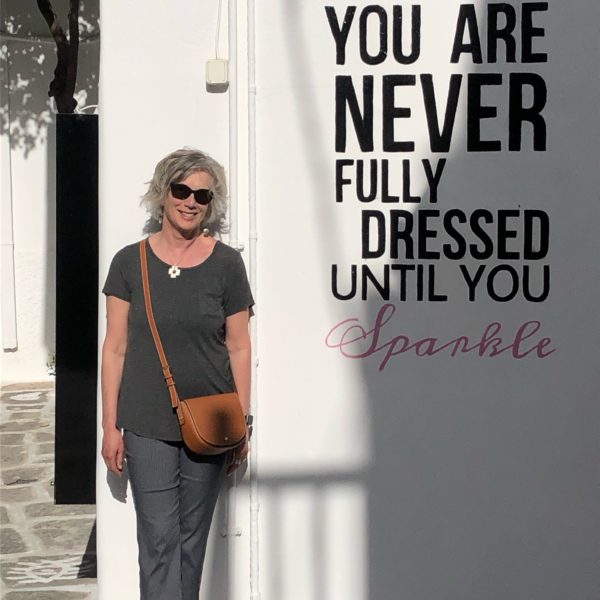
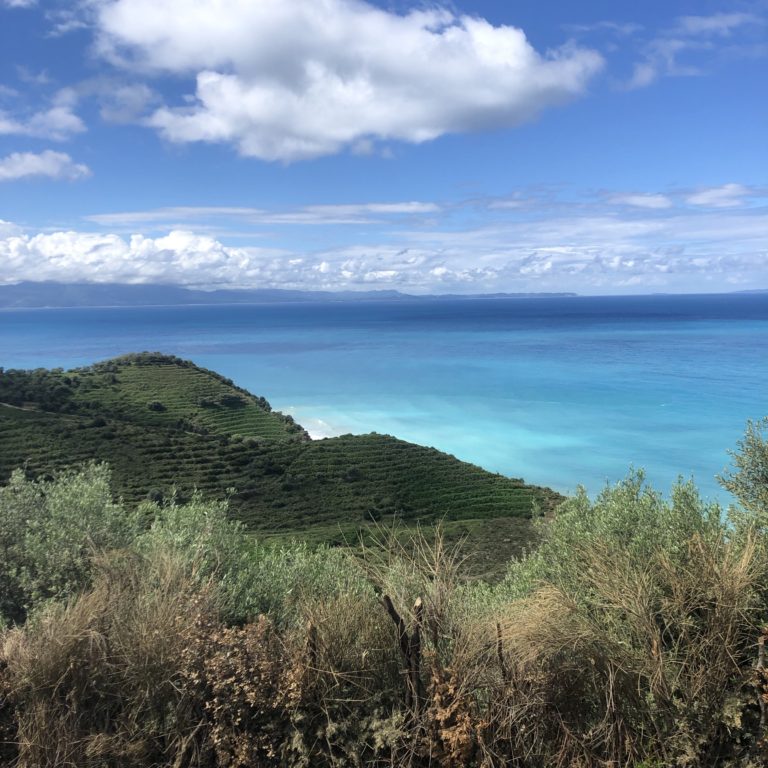
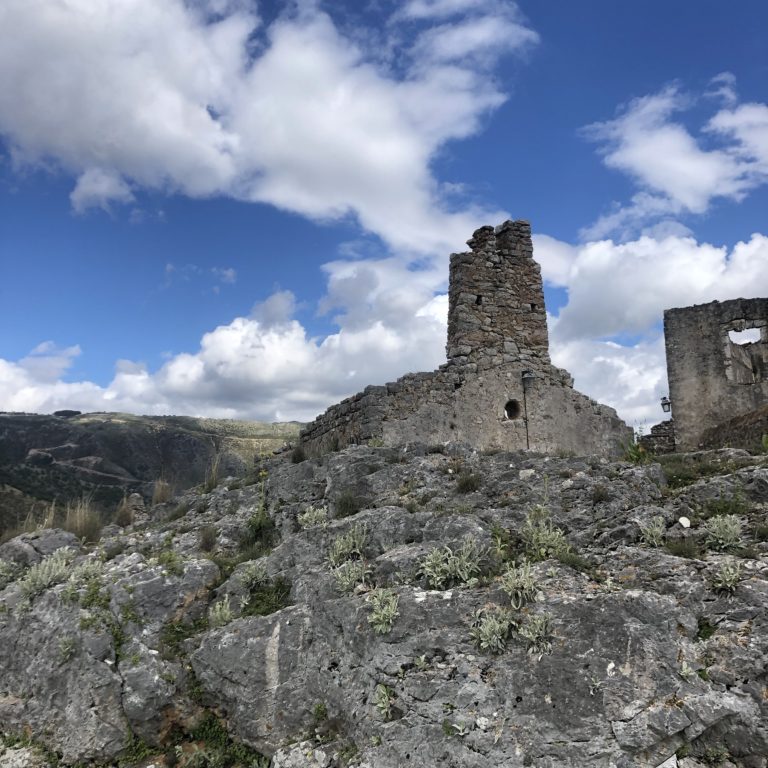
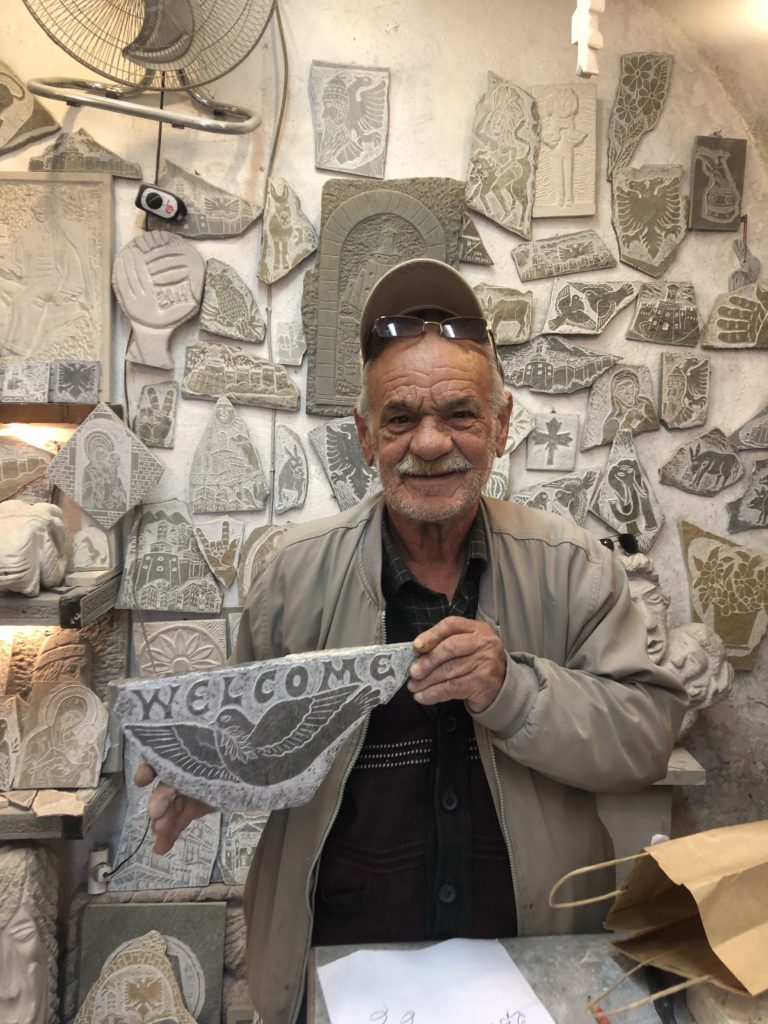
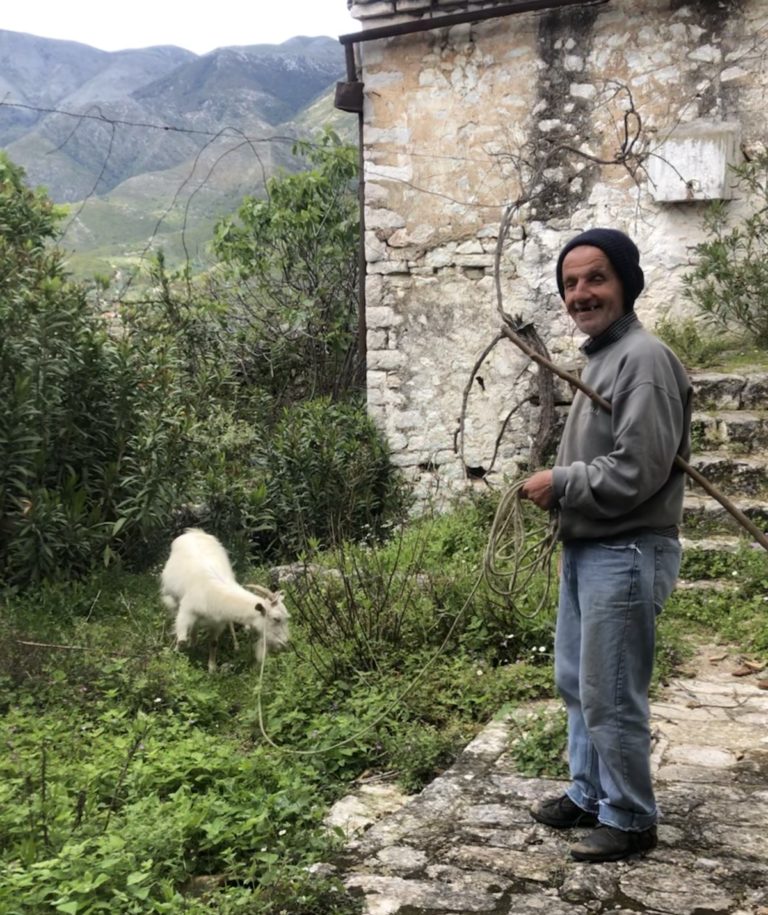
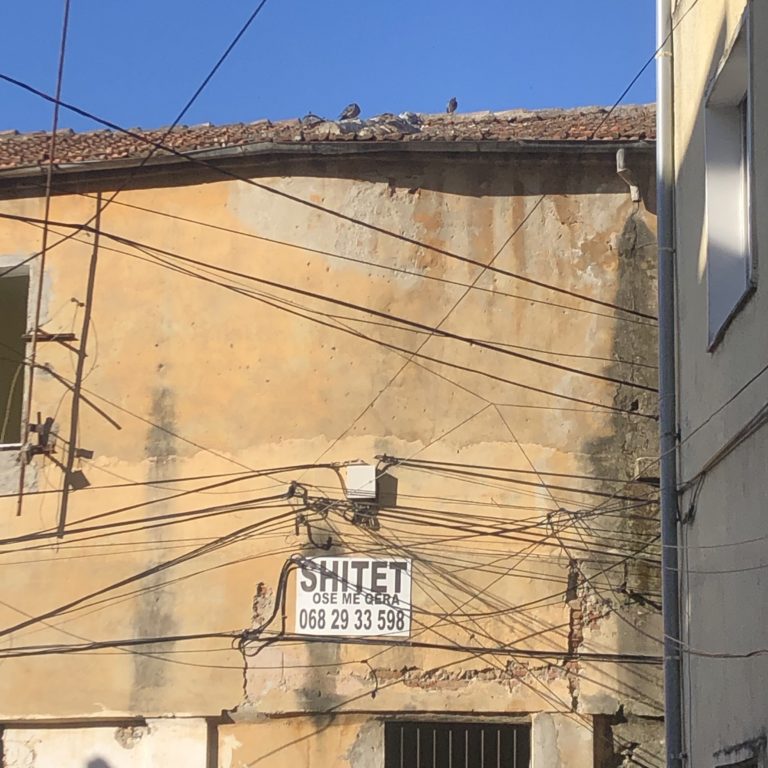
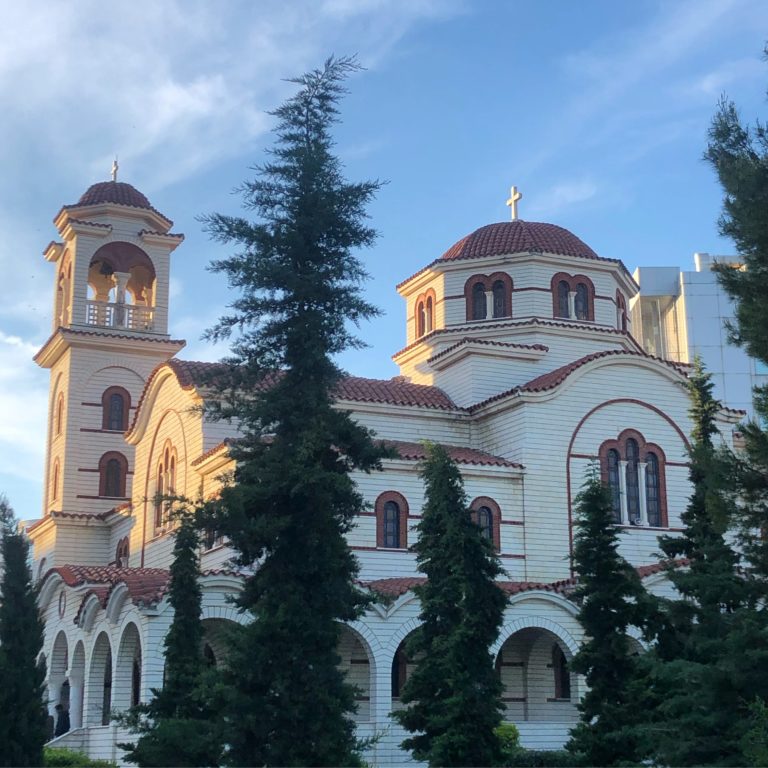
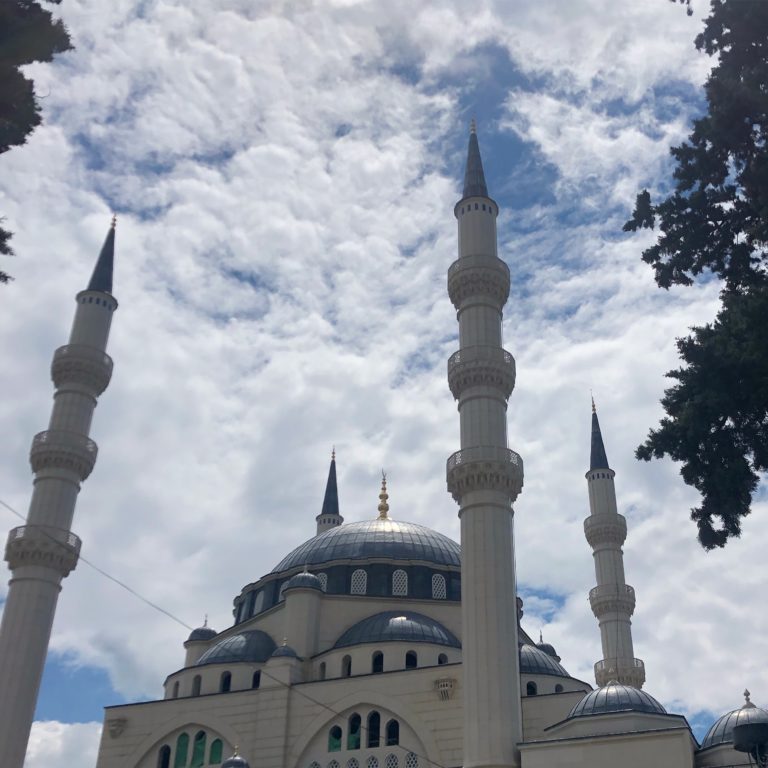
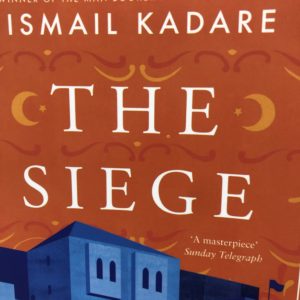
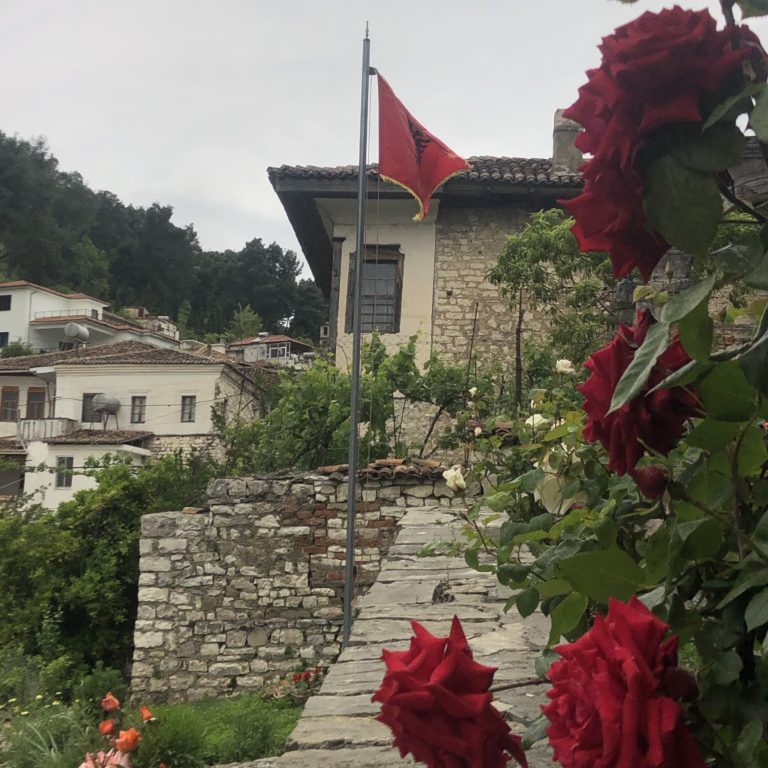
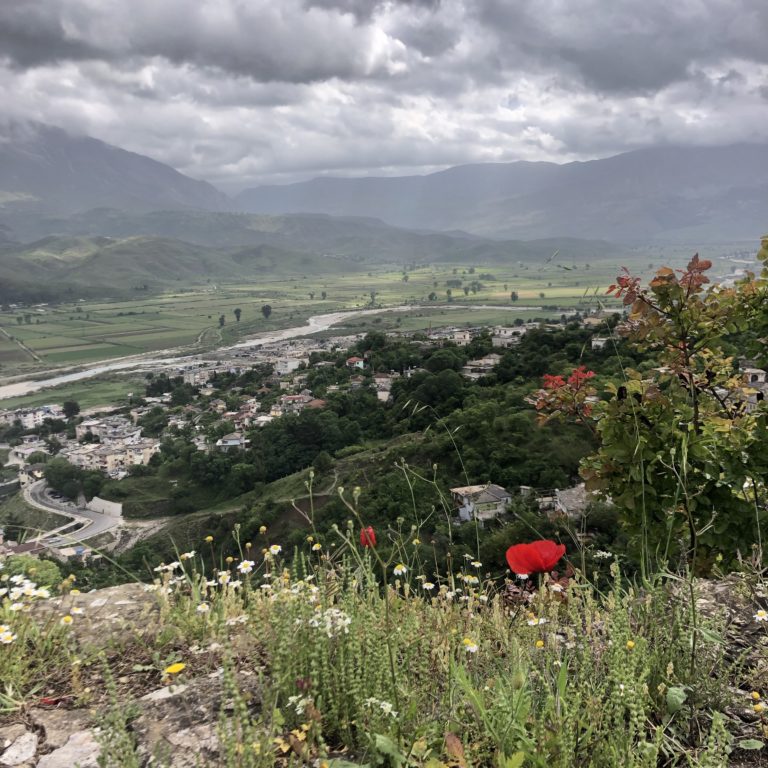
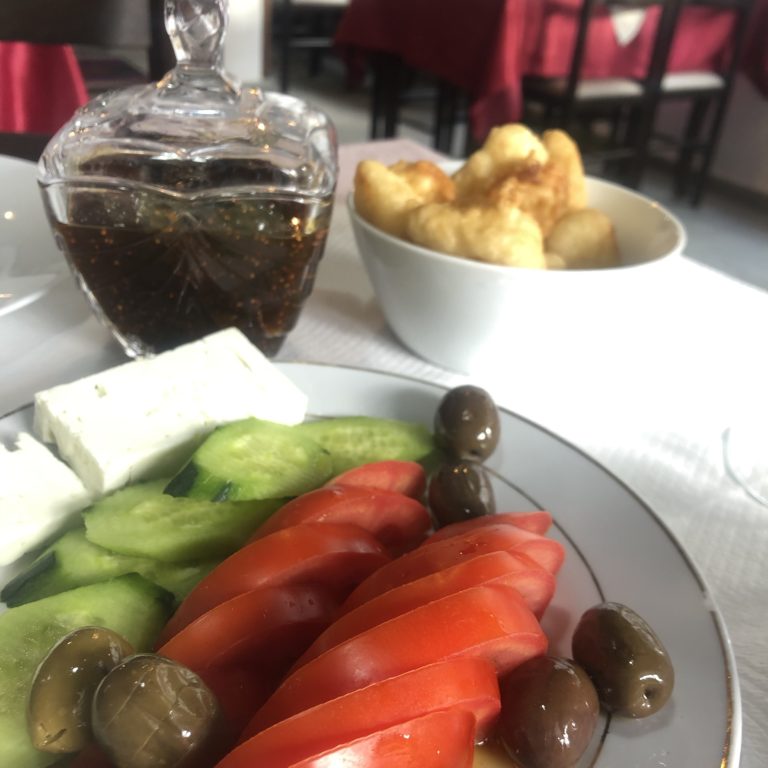
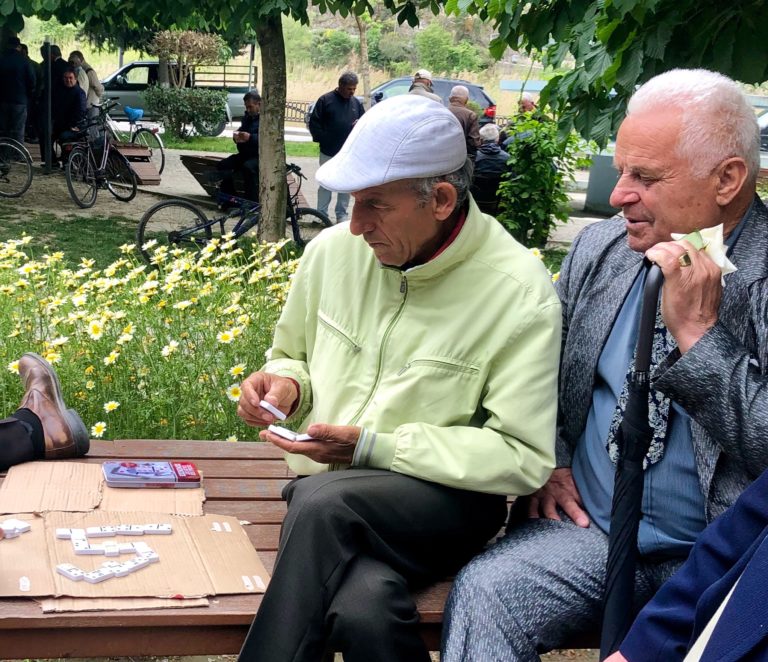
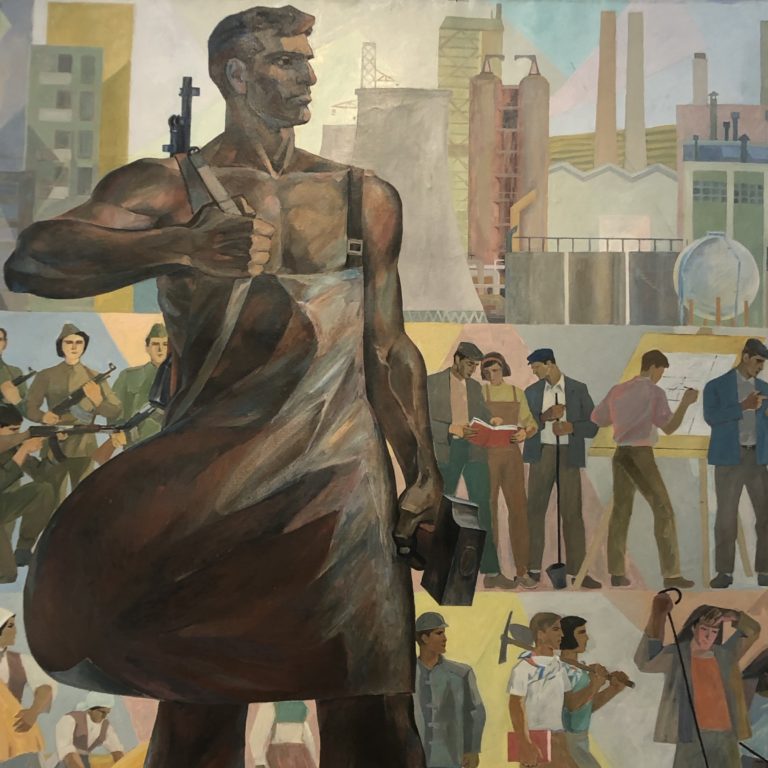
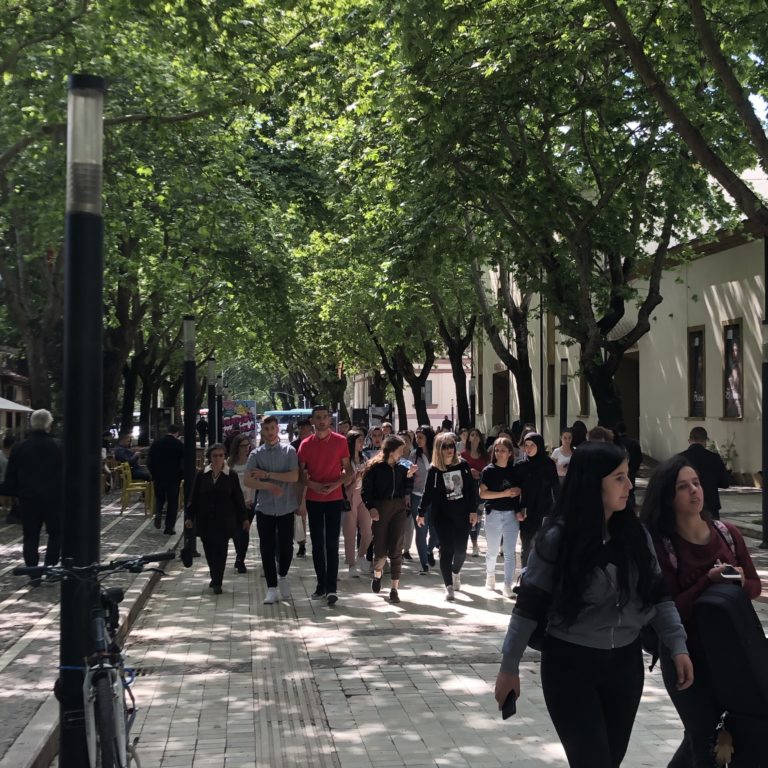
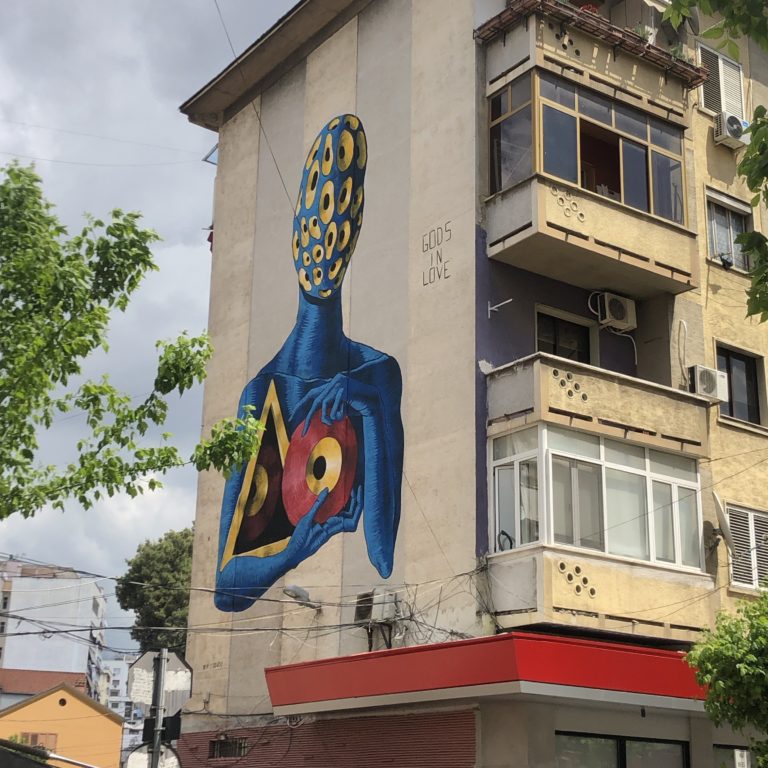
Hi Colleen,
We shared the AGM yesterday. I was with Erika and we are currently in Kyiv until June 15 when we return, and we’ll be in the cabin at Kimberley for the following few weeks, at least.
Albania: I lived there with my family for 3 1/2 years in Tirana. We saw 9/11 on TV 3 months after arrival and got everywhere as the country and surroundings opened up before moving on to Romania in 2005. I wrote “That Weekend in Albania” 4 years ago. It may still be available on Amazon. Thriller/ historical fiction and travel guide about the weekend trip we took to Butrint 6 weeks after 9/11. As one reviewer pit it, this fictionalized account is part James Bond, part Swiss family Robinson. I can supply you with a copy examining why a country located between the Med world’s 2 greatest civilizations (after Egypt) ended like it has.
Best regards
Peter Meehan
Hi Peter (& Erika). Thanks so much for your comment. (Unfortunately, my video didn’t work for me during our strata AGM so I won’t be able to recognize you when you arrive, but please introduce yourselves. We promise to keep our distance 🙂
I’d love to read a copy of That Weekend in Albania. I was horrified and fascinated by the little history I learned while visiting. We found it very beautiful and yet, kept marvelling over what can be endured, and even more incredible, at what can be forgiven.
I can’t imagine what living in Tirana would have been like in 2005. Looking forward to meeting you. Take care in your travels.